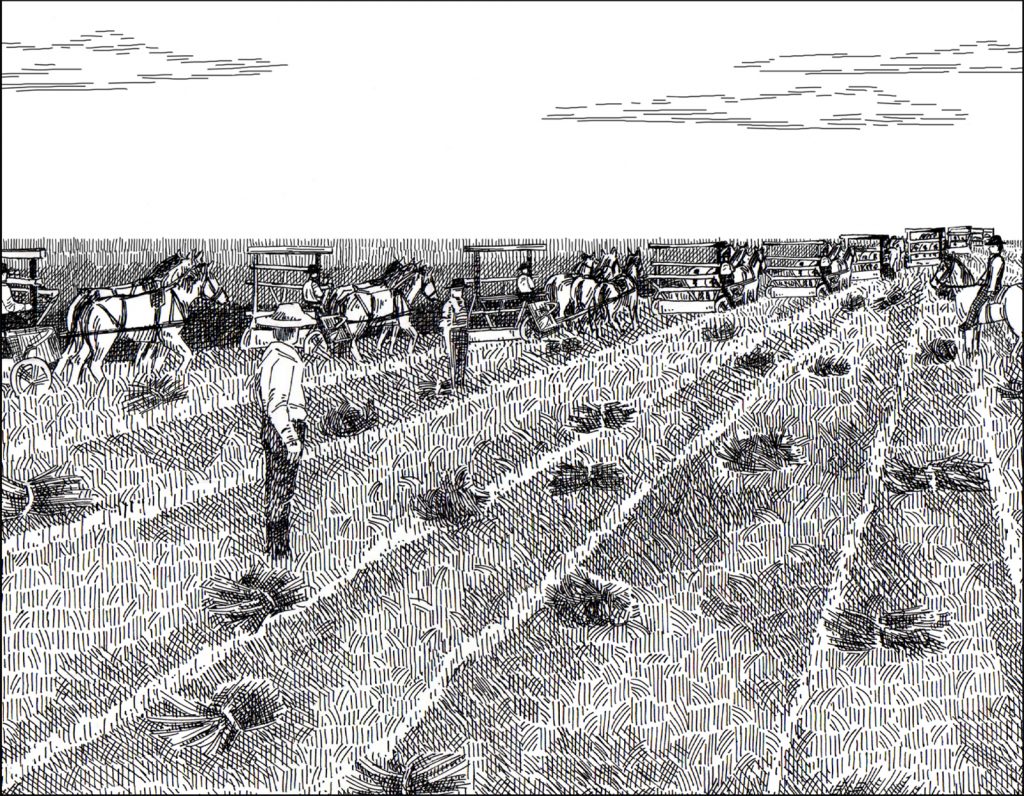ONE DAY THE DOCTOR TELLS YOU YOU’RE BLIND
to the truth. It’s physical; something about
the retina, rods, and cones. Truth is a wave-
length in the spectrum you’re unable to detect.
All your life you’ve been compensating,
convincing yourself you could see what you
could not. Suddenly you’ve got questions
about religion and politics and art, but what
you finally ask is about treatment. No, he says,
there’s little medical science can do. We know
it might be genetic; it’s likely one or another
of your parents can’t see the truth any better
than you. Also, we know this condition tends
to grow more acute with age. But frankly,
what doesn’t? he says, trying a smile. Well,
that does it, you think to yourself, as you
press the button in the elevator that will
drop you gently to the ground. Your wife
and kids were right all along, as were your
friends, who spent their lives dispensing
advice you repeatedly waved away. In a way,
it’s a relief, isn’t it. Now you can get down
to the business of apologizing, to everyone,
for what has been in fact an honest disability,
one that shouldn’t keep you from playing piano
or doing the things you would ordinarily do,
but which has gradually and progressively
made you the truthless husk of a man you
always knew, somehow, at your core, that you
are.
THE UPPER AND LOWER PECCADILLOES
One night he finds her
deep asleep, her arms
inexplicably cradling
the rotary mixer, its
cord snaking under
the comforter. Should
he tease it gently from
her, or leave them thus
combined? & what will
you do when you, too,
find a lover in alliance
with an appliance with
blades or beaters or a
chop setting? & how
soon stop forgetting?
Take it away, she may
end up sleepwalking
or rocking a swaddled
something resembling
the bread machine in the
swoon of a patio moon.
Nothing’s so strange it
can’t be stranger. If it
were me, I’d leave the
mixer be, as long as
nobody’s in any serious
danger. Don’t even wake
her. Let her awareness of
her particular weirdness
take her at its own speed,
meanwhile making what
it makes of dreams—
range upon range of stiff
cliffs of sweet creams—
the Upper & the Lower
Peccadilloes—whose
treacheries every man
treks, in the end, alone,
clutching what he can.
AND THEN ONE DAY IN A DEPARTMENT STORE
in a faraway city
it will come to you, the strains
of some Schumann or Chopin
you’d forgotten your father
used to fumble over all
those years before, and you’ll
realize—without quite
realizing it—how beautiful it is,
and that your father did well
to play it Sunday afternoon
after Sunday afternoon until
he’d pressed the limits
of his skills to its service,
and menswear will steadily
drift away as though it—not
you—were on the escalator,
and the third floor will come
gently to rest in the first and
vice versa, and somewhere in
housewares, or jewelry maybe,
as the last cascades of notes
come unstrung from memory
and melt into the past, you’ll
feel what he felt—or feel again
that familiar longing to learn—.
But it will be over too soon,
and there will be no return.
. . . . . . . . . . . . . . . . . . . . . . . . . . . . . . . . . . . . . . . . . . . . . . . . . . . .
These are some of the poems by Todd Boss featured in our Fall 2011 issue.
For ordering information or to find out more about the contents of this issue, click here.
. . . . . . . . . . . . . . . . . . . . . . . . . . . . . . . . . . . . . . . . . . . . . . . . . . . .
Note: Due to our limited staff and resources, we cannot currently accept orders online or by credit card. We must ask you to use regular mail. Thank you for your patience as we work on developing an online payment option.



